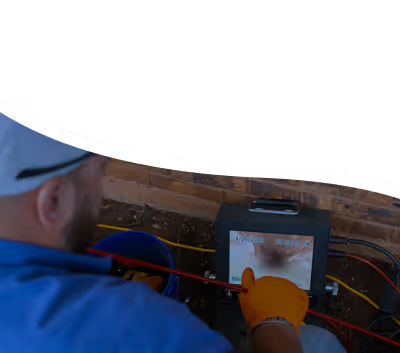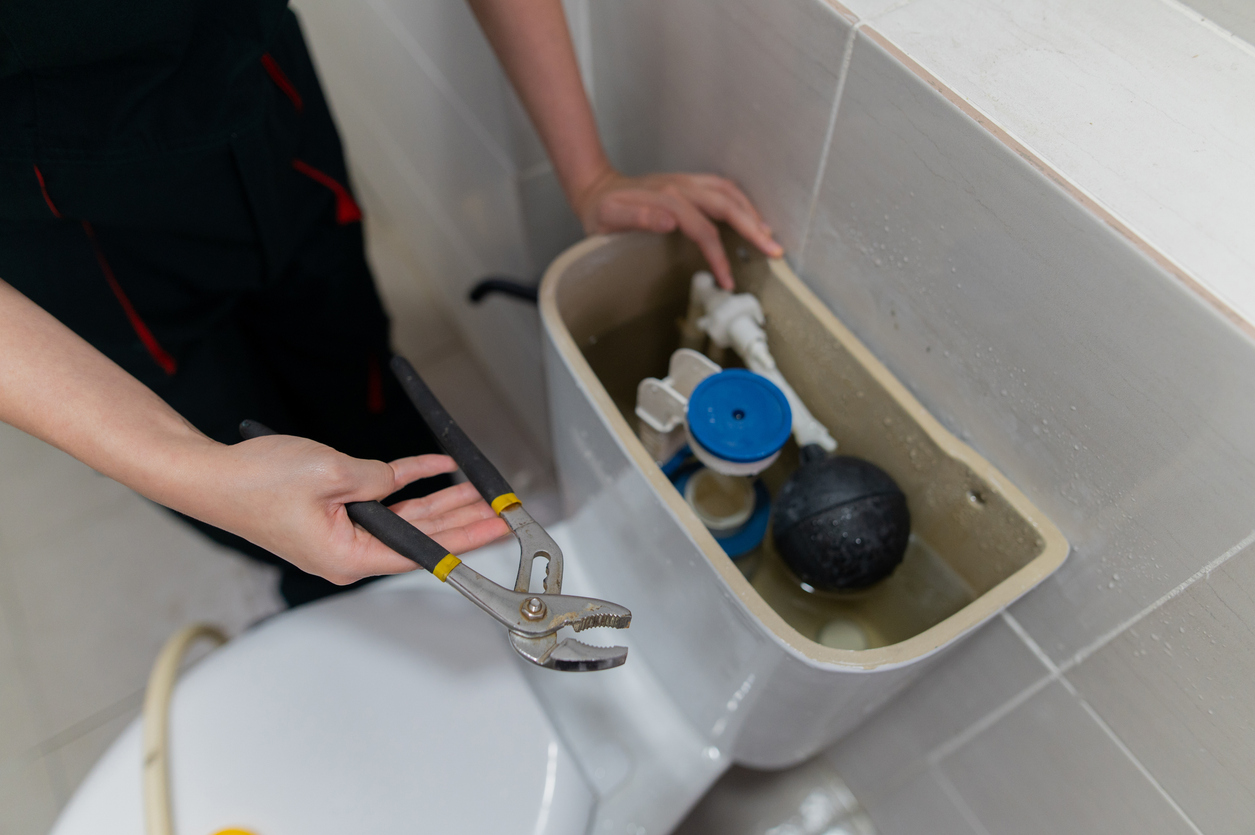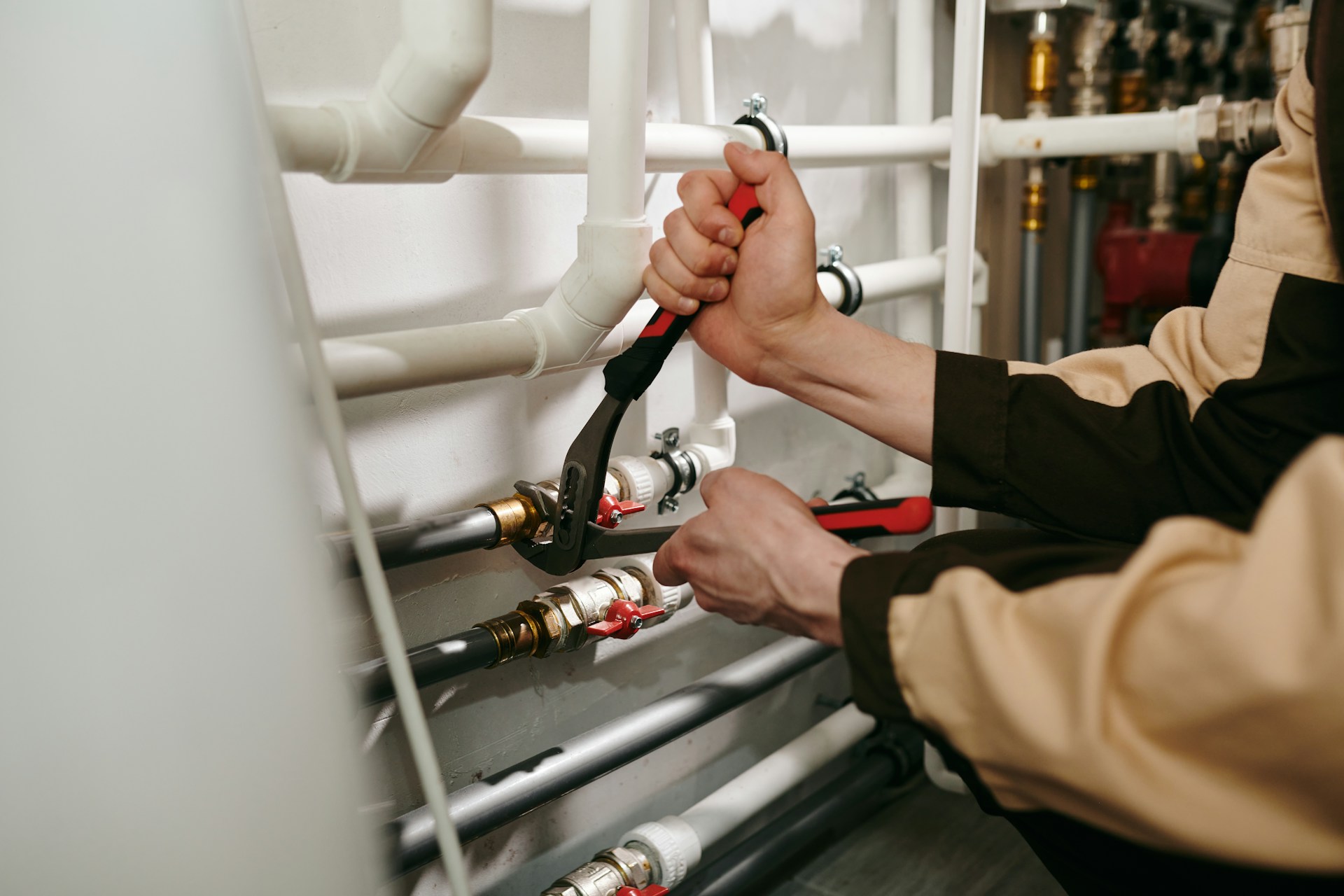Winter presents unique challenges for home plumbing systems. Among these challenges, drain clogs are a common problem that can lead to inconvenient and costly repairs. Cold weather and increased indoor activity mean more stress on drains, making them more susceptible to blockages from food scraps, grease, and other debris.
Understanding Common Causes of Winter Drain Clogs
During the winter months, several factors contribute to the increased likelihood of drain clogs. As temperatures drop, holiday gatherings lead to an uptick in household activity, often resulting in more food waste and other debris being disposed of in drains. Items such as potato peels, coffee grounds, and grease are typical culprits that can cause clogs if not disposed of properly.
Cold weather causes grease and oil to solidify, forming stubborn blockages that are difficult to remove. This solidification happens quickly, often before the substances can be flushed through the plumbing system, leading to clogged pipes. Moreover, the increased use of hot water due to colder weather can ironically contribute to blockages if grease is flushed with the hot water only to re-solidify further down the line.
Another factor to consider is the change in water usage patterns. In winter, people generally take longer, hotter showers and run water more frequently to combat the chill, which increases the strain on plumbing systems. Pipes that are already vulnerable might succumb to these pressures, leading to more frequent and severe clogs.
Preventative Measures for Maintaining Clear Drains
Preventing winter drain clogs starts with a proactive approach. Implementing a few simple measures can significantly reduce the likelihood of encountering clogs. Here are some effective preventative actions to maintain clear drains:
1. Proper Food Disposal: Avoid disposing of fibrous vegetable peels, coffee grounds, and eggshells in the sink. Use a compost bin or trash can instead.
2. Regular Hot Water Flushing: Pour boiling water down the drains periodically to help dissolve and clear away any grease that might start to solidify.
3. Grease and Oil Management: Never pour grease or oil directly down the drain. Instead, collect it in a container and dispose of it with regular waste.
4. Use Screens and Drain Guards: Install mesh screens or guards over drain openings to catch food particles and other debris before they enter the plumbing system.
5. Mind the Disposal: If you have a garbage disposal, run cold water before and after to ensure all ground food particles are flushed and do not stick to the pipes.
By adopting these methods, the risk of encountering an inconvenient drain clog during the winter months can be significantly reduced. Remaining vigilant with these preventative practices will keep the plumbing system in good condition and minimize the need for emergency repairs.
The Role of Professional Maintenance in Drain Care
Regular professional maintenance is essential for preventing winter drain clogs. Our professionals can provide thorough drain cleaning services, which help remove any accumulations that might lead to blockages. This proactive approach ensures that minor issues are addressed before they develop into significant problems.
Scheduling routine cleaning sessions allows our plumbers to inspect the entire plumbing system. Identifying potential trouble areas early on enables our technicians to perform targeted repairs, such as repiping or slab leak repair, ensuring the long-term health of the plumbing. Preventative maintenance is an investment that can save time and expense by avoiding unexpected plumbing emergencies.
In addition to routine maintenance, our professionals are equipped to provide necessary interventions, such as drain augering and hydro-jetting, to tackle stubborn clogs. These advanced techniques effectively clear blockages and maintain optimal water flow. Trusting our experienced team for regular maintenance keeps your drainage system efficient during the winter months and beyond.
Effective Use of Plumbing Technology to Prevent Clogs
Advanced plumbing technology offers numerous solutions to prevent winter drain clogs. One such innovation is trenchless sewer repair. This method allows for the repair of sewer lines with minimal disruption to your property. The technology is efficient and ensures that blockages are addressed with precision, resulting in a more resilient drainage system.
Another effective solution is the installation of tankless water heaters. Unlike traditional water heaters, tankless versions provide hot water on demand and reduce sediment build-up in pipes, which helps in maintaining smooth water flow. This is crucial during winter when the demand for hot water increases significantly.
Additionally, employing modern reverse osmosis water filtration can reduce the accumulation of minerals that contribute to pipe blockages. This technology filters out impurities and protects the integrity of your water system. Embracing these technologies helps maintain the plumbing system, minimizing disruptions and ensuring a continuous water supply throughout the winter.
Conclusion
Preventing drain clogs in winter requires a comprehensive approach. By understanding the common causes and implementing preventive measures, homeowners can greatly reduce the risk of blockages. Regular professional maintenance and adopting advanced plumbing technologies further ensure that the plumbing system remains efficient and problem-free.
Midway Plumbing invites you to trust in our professional drain cleaning in Wylie to keep your drains clear and your plumbing system running smoothly. Whether it’s scheduling regular maintenance or exploring advanced technology solutions, our team is ready to assist. Contact us today to learn how we can help keep your home’s plumbing system in top shape.










